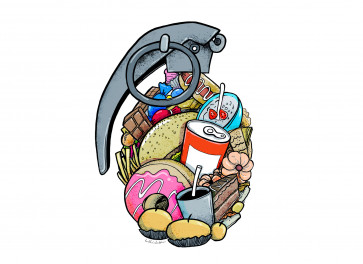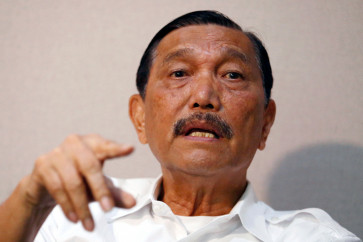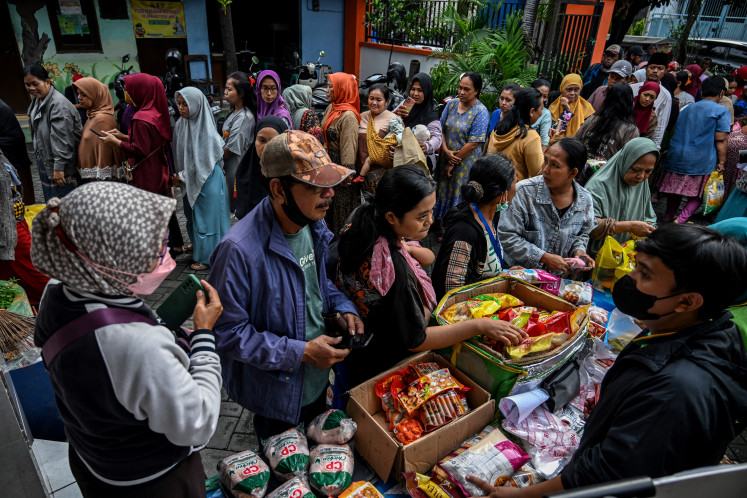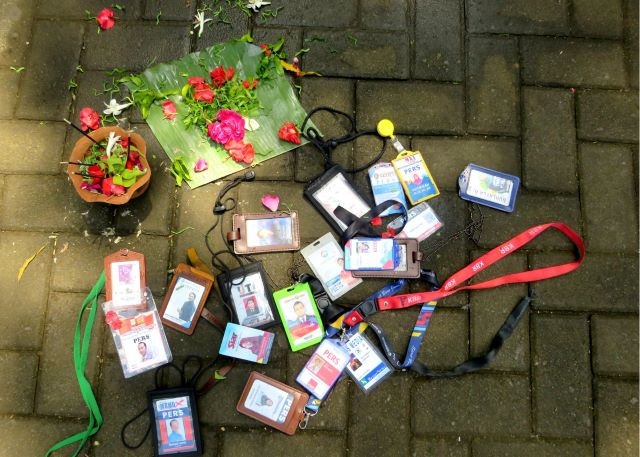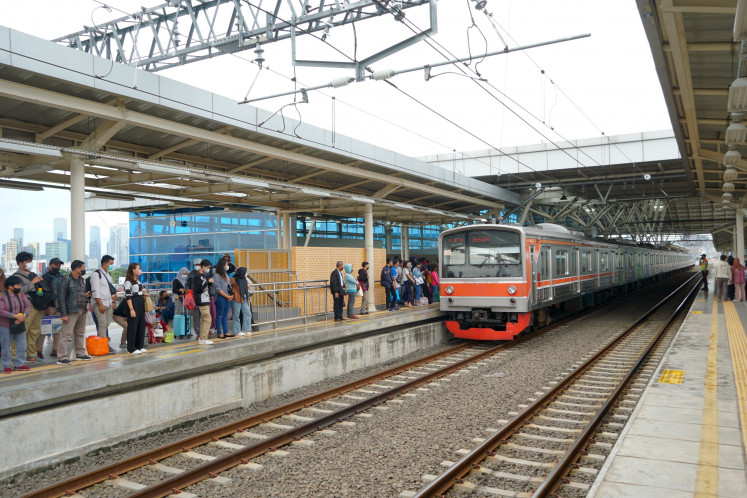A meeting of hip-hop minds
Forget the bling, guns and oversized tracksuits – Yogyakarta’s ILMU festival is coming up this weekend to showcase contemporary international hip-hop, and how much this ever-evolving genre has to offer
Change Size

F
orget the bling, guns and oversized tracksuits – Yogyakarta’s ILMU festival is coming up this weekend to showcase contemporary international hip-hop, and how much this ever-evolving genre has to offer.
Javanese flavor: Jogja Hip Hop Foundation performs earlier this year. JP/Sri Wahyuni
Indonesian and Australian artists and musicians are coming together in Yogyakarta this weekend to share stories, skills and ideas at the first ILMU festival of hip-hop and electronic music, hosted at the Jogja National Museum.
As a platform for open self-expression and storytelling, hip-hop is a genre that has been readily absorbed and transformed by cultures throughout the world. Neighboring nations Indonesia and Australia are no exception.
“Hip-hop is about vocalizing your narrative,” says festival co-director Kristi Monfries. “It’s about your background, where you come from. It’s really the ultimate platform for exchange.”
Monfries, along with co-director Kaho Cheung and producer Kate Ben-Tovim have spent months putting together a jam-packed program for this weekend’s festival in Yogyakarta, including gigs, workshops, and musical collaboration between Australian and Indonesian hip-hop communities.
“It’s been a highly collaborative project,” says Monfries. “We’ve tried to include as many communities as possible to provide an accurate reflection of what is really happening in the scene.”
With hip-hop communities incorporating visual arts projects such as screen-printing, graffiti, street art and new media, ILMU festival is bound to attract broad interest from Yogyakarta’s highly integrated art scene, as well as involvement from the visiting Australian hip-hop artists.
Big-name acts such as Ozi Batla, Hermitude, Urthboy and Roda Roda Sound System are coming out from Australia to meet with the likes of Nova Ruth, Love Hate Love, MC Bellal, and the Jogja Hip Hop Foundation for a weekend of artistic collaboration and experimentation.
“Ilmu is the Indonesian word for a sphere of knowledge,” says event co-director Kaho Cheung. “So we’ll be sharing knowledge between experts from different spheres, like hip-hop, electronic music, and business skills as well.”
Kicking off with a warm-up gig at the SURVIVE!garage art space in Yogyakarta’s southwest on Friday night, the festival will be providing a showcase of local and imported talent at the Jogja National Museum on Sept. 18-19, including workshops on topics such as electronic music production, freestyling, turntablism, and tips on industry success for budding artists.
Cheung will also be performing at the festival as solo electronic artist Unkle Ho, and providing the beats for Australian-Indonesian collective Jalan Surabaya. The Jakarta-based Australian artist says that he has learnt a lot through musical collaboration with Indonesian hip-hop and electronic groups.
“We’re aiming to introduce a bit of Australian flavor to the Indonesian hip-hop scene, and hopefully absorb a bit of flavor from Indonesia to bring back to Australia,” he says.
Both Indonesia and Australia have established hip-hop communities, which are rapidly gaining a broader appeal. However, the two scenes have until now been developing in parallel.
“Not many people realize, but one of the biggest bands in Australia today is actually a hip-hop band, the Hilltop Hoods,” says Cheung. “There’s nothing like that in Indonesia yet — the hip-hop scene is big but it’s still pretty underground.”
Cheung predicts that new computer software will accelerate the development of the hip-hop and electronic scene in Indonesia, as electronic musicians are freed from having to purchase expensive equipment to make their music.

“There are new characters popping up everywhere in Yogya, like Love Hate Love, and then there are the Jogja Hip Hop Foundation guys who have been around for ages,” he says. “Now you can do it all in the box.”
Monfries adds that social networking sites such as Facebook have taken over as the main point of contact between new artists and their communities.
“There’s no point in printing anything anymore, it’s a waste,” she says. “Everything in Yogya is organized by Facebook, or by word of mouth.”
New methods of communication and networking are also likely to have an effect on the possibilities for closer collaboration between Indonesian and Australian hip-hop communities. However, distances could remain in terms of cultural and linguistic differences.
While the Australian hip-hop artists express themselves in the distinctive strains of colloquial Australian English, drawing on imagery from the Australian popular imagination, local Yogyakarta acts such as the Jogja Hip Hop Foundation incorporate traditional elements into their music, drawing on Javanese language, poetry, art and story-telling styles to express their personal narratives.
“When we use Javanese, it feels great,” says MC Marzuki. “It brings our music closer to the community, and closer to the arts and traditions of Java.”
However, fellow group member Dimas Pas doesn’t see language as an obstacle for collaboration and exchange of ideas across cultures.
“Language differences won’t be an issue,” he says. “You can still hear the beat. That is how we can share our experiences and our identities.”
MC Marzuki agrees.
“My hope for this festival is simple,” he says. “Just to meet and to share. For me that is the most important thing. Just to share about our identities.”

